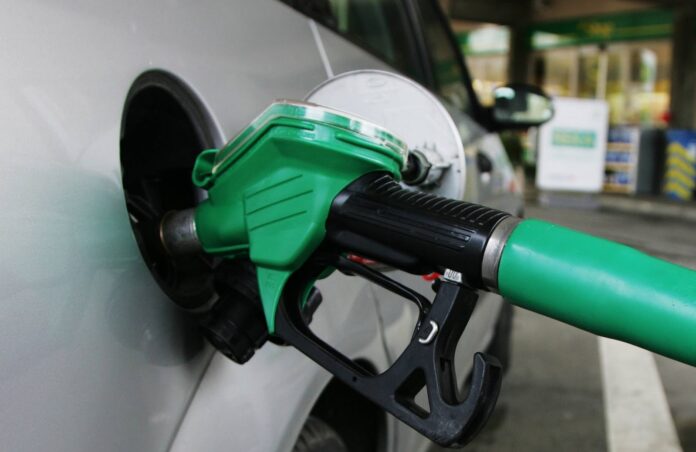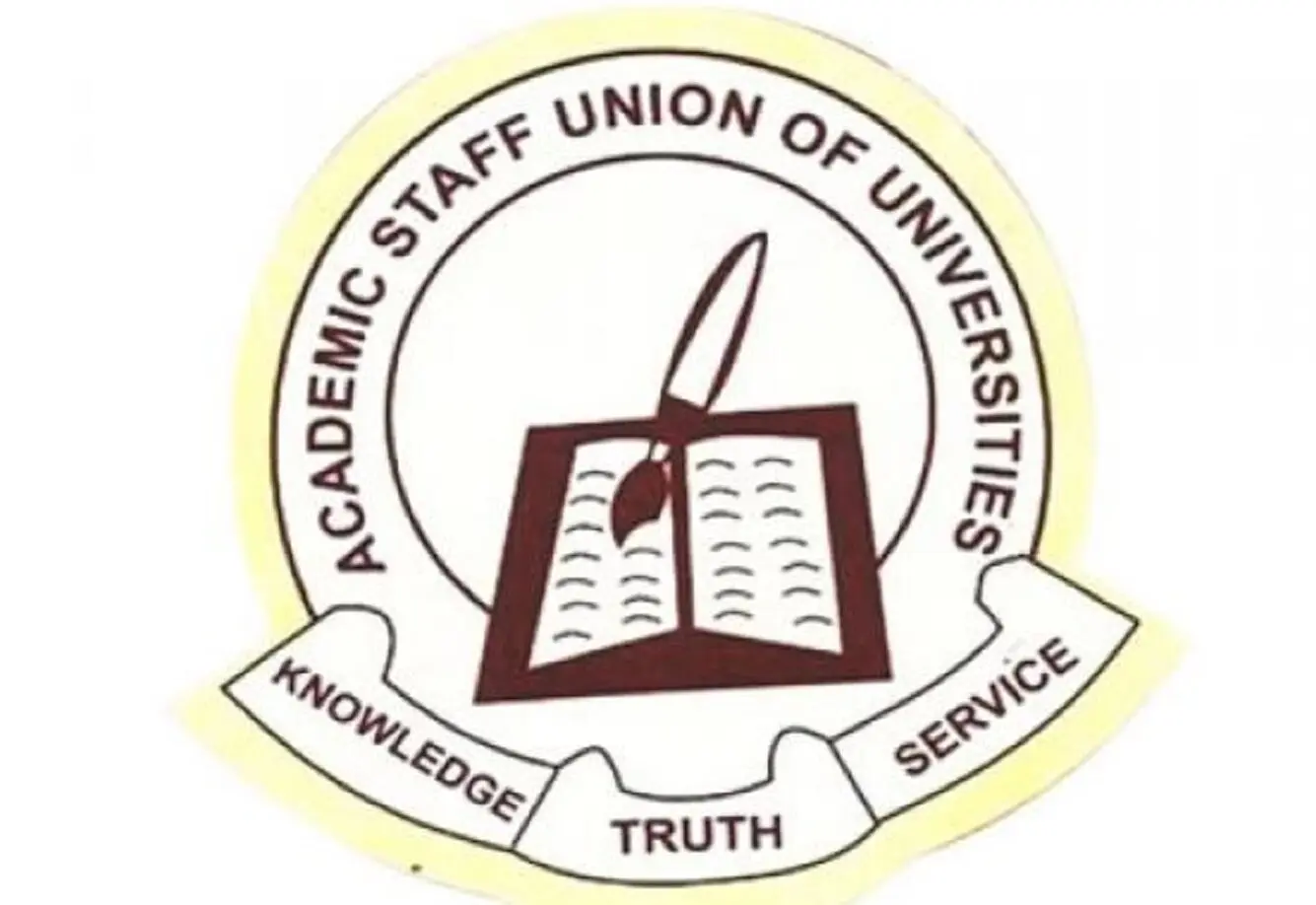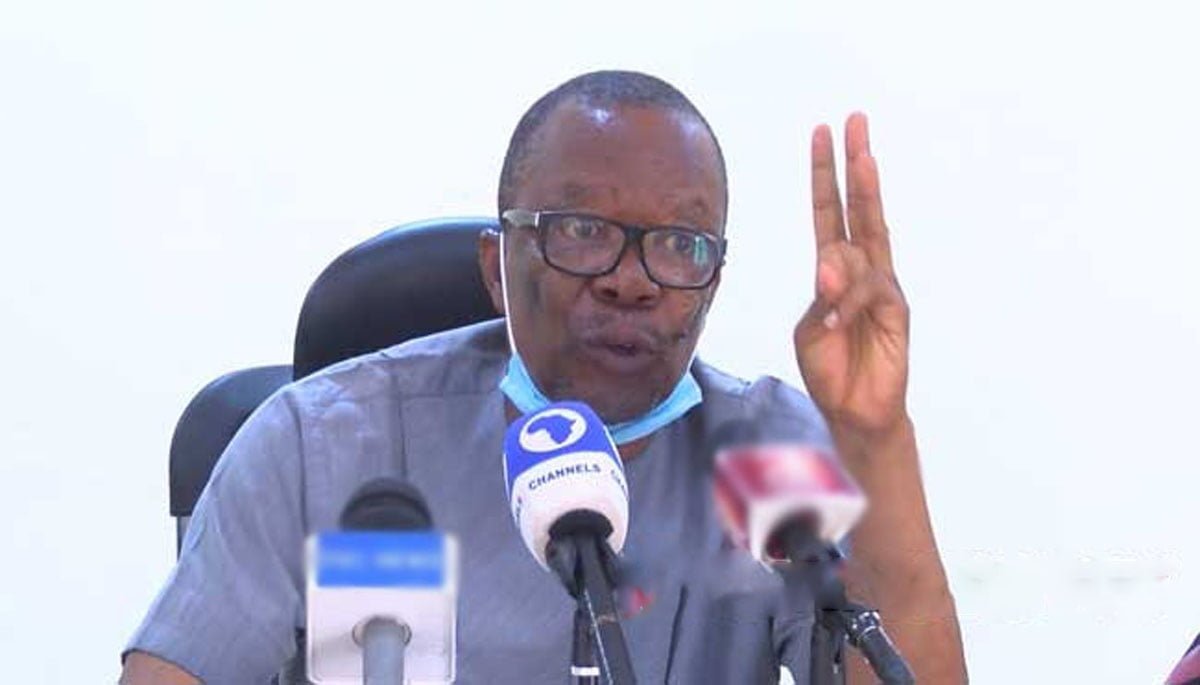Headlines
Petrol supply is 68 million litres daily, NNPC clarifies

In response to the alleged inflation of petrol imports and consumption in Nigeria, the Nigerian National Petroleum Company (NNPC) Limited has insisted that average petrol supply in the country stands at 68 million litres per day.
The company also disclosed that the total volume of petrol imported into the country between January and August 2022, was 16.46 billion litres, which translated to the 68 million litres daily supply.
NNPC made the assertions in a statement issued on Sunday and signed by its Group General Manager, Group Public Affairs Division, Mr. Garba Muhammad.
In another development, some energy experts and economic policy analysts have hailed NNPC for locking up a 20- year 300,000 barrels per day crude supply deal with Dangote Refinery as part of its 20 per cent equity investment in the Lagos-based 650,000 barrels per day facility.
NNPC’s latest clarification followed last week’s claims by the Controller-General of the Nigeria Customs Service (NCS), Col. Hameed Ali, (retd) that the company allowed the release of 98 million litres of petrol per day for local consumption instead of 60 million litres admitted by its own computation.
Speaking during a meeting with National Assembly members last Thursday, Ali had also faulted the petrol subsidy regime, describing it as fraud and not existent.
But reacting to the claims, NNPC in the statement, clarified that between January and August 2022, the total volume of petrol imported into the country was 16.46 billion litres.
The company maintained that import in 2021 was 22.35 billion litres, which translated to an average supply of 61 million litres per day.
The NNPCL stated that it was prepared for any forensic audit if the need arose, adding that if petrol subsidy was removed, a litre of petrol would be selling for N462.
It noted that the average daily evacuation (Depot truck out) from January to August 2022 stood at 67 million litres per day as reported by the Nigerian Midstream and Downstream Petroleum Regulatory Authority (NMDPRA).
It explained that Daily Evacuation (Depot load outs) records of the NMDPRA do carry daily oscillation, ranging from as low as four million litres to as high as 100 million litres per day.
The state oil company also pointed out that the impact of maritime and cross border smuggling of petrol might be affecting the overall supply framework, acknowledging the possibilities of other criminal activities in the supply and distribution value chain.
NNPC further stated that rising crude oil prices and petrol supply costs above NMDPRA cap had forced oil marketing companies’ withdrawal from petrol import since the fourth quarter of 2017.
In the light of these challenges, the state oil firm explained that it had remained the supplier of last resort and continued to transparently report the monthly petrol cost under recoveries to the relevant authorities.
The statement read: “The NNPC Ltd. wishes to inform members of the general public that between January and August 2022, the total volume of Premium Motor Spirit imported into the country was 16.46 billion litres, which translates to an average supply of 68 million litres per day.
“Similarly, import in the year 2021 was 22.35 billion litres, which translated to an average supply of 61 million litres per day. The NNPC Ltd notes the average daily evacuation (Depot truck out) from January to August 2022 stands at 67million litres per day as reported by the Nigerian Midstream and Downstream Petroleum Regulatory Authority (NMDPRA).
“Daily Evacuation (Depot load outs) records of the NMDPRA do carry daily oscillation ranging from as low as 4 million litres to as high as 100 million litres per day.
“The NNPC also wishes to point out that rising crude oil prices and PMS supply costs above PPPRA (now NMDPRA) cap had forced oil marketing companies’ (OMCs) withdrawal from PMS import since the fourth quarter of 2017.
“In the light of these challenges, NNPC has remained the supplier of last resort and continue to transparently report the monthly PMS cost under recoveries to the relevant authorities.”
It also noted that the average first quarter (Q1) 2022 international market determined landing cost was $1,283 per metric tonnes and the approved marketing and distribution cost of N46/litres.
NNPC stated that the combination of these cost elements translated to retail pump price of N462 per litre, an average subsidy of N297 per litre and an annual estimate N6.5 trillion on the assumption of 60 million litres daily petrol supply.
Noting that the figures would continuously be adjusted by market and demand realities, NNPC said it shall continue to ensure compliance with existing governance framework that requires participation of relevant government agencies in all petrol discharge operations, including Nigerian Ports Authority (NPA), (NMDPRA), Nigerian Navy (NA), (NCS), Nigerian Maritime Administration and Safety Agency (NIMASA) and all others.
“NNPC Ltd. recognises the impact of maritime and cross border smuggling of PMS on the overall supply framework. NNPC also acknowledges the possibilities of other criminal activities in the PMS supply and distribution value chain.
“NNPC will continue to engage and work with relevant agencies of the government to curtail smuggling of PMS and contain any other criminal activities.
“We will continue to deliver on our mandate to ensure energy security for our country with integrity and transparency. We invite any forensic audit of the PMS supply and subsidy,” the statement added.
In another development, some energy experts and economic policy analysts have hailed NNPC for locking up a 20-year crude supply deal with Dangote Refinery as part of the benefits of its 20 per cent equity investment in the Lagos-based 650,000 barrels per day facility, describing it as a noble business decision.
They spoke to THISDAY on the back of last week’s remarks by the Group Chief Executive Officer (GCEO) of NNPC, Mallam Mele Kyari, who for the umpteenth time, justified the company’s 20 per cent equity investment in the refinery.
Kyari had disclosed last week in Abuja that NNPC would have the first right of refusal to supply the Dangote refinery with about 300,000 barrels of crude oil per day for the next 20 years having acquired 20 per cent equity interest and minority shareholder in the facility.
He said the company had succeeded in locking up the huge supply as part of the federal government’s means of guaranteeing sufficient petroleum products supply for Nigeria as well as a guaranteed market for the nation’s crude oil.
“We have secured the right to sell up to 300,000 barrels of crude oil to the Dangote refinery for the next 20 years. Not only that, by right, we also have access to 20 per cent production from that plant,” Kyari had said.
Commenting on the development, petroleum economist, Prof. Wumi Iledare, told THISDAY that NNPC made a noble business decision by investing in the Dangote Refinery.
Iledare, however, stated that a few questions needed to be addressed as both companies begin to actualise the terms of the agreement, adding that there is need for more action to expand the nation’s oil reserve and production capacity to 40 billion barrels and four million barrels respectively.
Iledare said, “I think it is a noble business decision. There are, however, a time value of money cost in addition to a significant foregone value in terms of the limit of the quantity of crude oil available to NNPCL for export and domestic obligations.
“Legitimate questions include the implications on NNPC Limited refineries with 445,000 barrels throughput capacity at stake. Is the 300,000 barrels for the Dangote an additional to the 445,000? If export is reduced what would be the implication of FOREX and the exchange rate?
“I want to believe these questions have been addressed and efforts would be in place to expand oil reserves and production capacity, in the near term, to 40 billion and four million per day, respectively, to deliver the promise.”
Also, the Managing Director, KSBC Knowledge Resources Limited, Mr. Chika Mbonu, told THISDAY that the move by NNPC was long over-due as many of its peers like Saudi Arabia’s Aramco, Brazil’s Petrobras, the Russian national oil company among others were investing massively in refineries around the world because of the benefits in such investment.
Mbonu said with the investment in the Dangote Refinery, NNPC would have a guaranteed market for its crude oil whether there is oil glut or not, insisting that the company was even a late comer to the table in this kind of investment initiative.
He explained, “It’s a deliberate investment objective by national oil companies like NNPC to always invest in refineries so that when there is a glut in the crude oil market, they would have captive buyers for their product.
“So, the investment by NNPC in Dangote refinery is even very late. Other national oil companies like I told you before have been making those investments for long. Aramco even has investment in refineries in Mexico, in very far countries.
“So that’s why NNPC saw that investment opportunity to invest in Dangote refinery, because when the refinery starts, it’s free to buy crude from anywhere, including Saudi Arabia. So, now, with NNPC as an investor in Dangote Refinery, part of the investments agreement is that they must captively be buying crude from NNPC.
“So, NNPC has a guaranteed market for their crude oil whether there is a glut or no glut. So, that’s the issue. NNPC is a late comer to the table in this kind of investment initiative.”
On whether NNPC would sell crude to the refinery in naira or dollar, he explained that whichever currency both companies agreed, the price must be at the prevalent market rate.
Mbonu added that Dangote has the privilege to buy crude from anywhere they want, saying if they are buying from NNPC, it has to be on terms very favourable to them and nobody would sell crude to any refinery at any price below the market rate of crude whether in naira or in dollar.
He further explained that there would be more value added as Nigeria moves from exporting crude and using the money to import petrol to refining locally.
“You know, from crude oil, you get about four or five derivatives. So, there is more value added in selling those derivatives than selling crude oil. It now means that with Dangote Refinery producing and NNPC refineries also producing and we have surplus, we can export petrol, diesel, kerosene, aviation fuel and other things to earn more foreign exchange which comes to support our reserve too,” he added.
On his part, Managing Partner at ENR Advisory, an energy investments advisory firm, Mr. Gbite Adeniji, said NNPC’s investment in the private refinery would be a means to ending the domestic products supply shortages which Nigeria is currently grappling with.
“I suppose that should mean that we shouldn’t expect any further problems with domestic products supply. When the NNPC – owned refineries eventually come on stream, one would expect that they would back out those volumes from the Dangote refinery which can then be exported.
So, the first objective has to be domestic security of supply and ultimately, FX revenues,” Adeniji said.
Northern Groups Call for Removal of Petroleum Subsidy
Meanwhile, the Concerned Northern Forum (CNF) in Conjunction with some civil society groups have called on President Muhammadu Buhari to remove petroleum subsidy.
The group also kicked against the N48 billion pipeline security contract awarded by the federal government to a former Niger Delta militant, Government Ekpemupolo, popularly known as Tompolo.
Addressing a press conference on Sunday in Kaduna, Chairman of CNF, Ibrahim Bature, said petroleum subsidy, “is the greatest crime being perpetrated against Nigerians.”
The group said, “the subsidy regime which has regularly stopped the NNPC from contributing revenue to the federal government, has stunted infrastructural development.”
Bature called on the federal government to consider the removal of the subsidy so as, “to take the feeding bottle away from the mouths of cartels stealing our common wealth.”
The group also faulted claims by the NNPC and the Ministry of Petroleum Resources that an estimated 200,000-400,000 barrels of crude are stolen per day, arguing that recent statements by the Chief of Naval Staff, Vice Admiral Gambo and Ali, showed that such claim was outrageous and unrealistic.
“We wish to call on Mr. President to look critically into the position of both the Nigeria Custom and Nigerian Navy over the outrageous claims of theft in the oil and gas sector by the NNPC.
“Our group deduced that the subsidy regime which has regularly stopped the NNPC from contributing revenue into the Federation Account is the greatest crime being perpetrated against Nigerians.” Bature said.
The group further declared that it is, “vehemently opposed,” to the pipeline Surveillance Contract the NNPC awarded to Tompolo, insisting that, “it should be terminated with immediate effect.”
The CNF urged the federal government to channel the N48 billion contract to addressing the developmental and environmental challenges in the Niger Delta region.
Bature also called on the president to immediately sack the Head of the Nigeria Communication Satellite (NIGCOMSAT), “for failing to effectively cover the territory and expose crime to the relevant authorities.”
The group asked Buhari to declare a state of emergency in the NNPC, “by appointing a military administrator to watch over the affairs of the company pending when investigations will be concluded into the subsidy regime that cost the country trillions of naira annually.”
The group commended the National Assembly for initiating the ongoing probe into the subsidy regime and urged the lawmakers to make the process public, through live broadcast.
“We have realised that the real oil theft is not done on the pipeline, but in the office. We urge the federal government to please listen to our clarion call and do the needful.” Bature said.
Headlines
Noble Ladies Champion Women’s Financial Independence at Grand Inauguration in Abuja

Women from diverse backgrounds across Nigeria and beyond gathered at the Art and Culture Auditorium, Abuja, for the inauguration and convention of the Noble Ladies Association. The event, led by the association’s Founder and “visionary and polished Queen Mother,” Mrs. Margaret Chigozie Mkpuma, was a colourful display of feminine elegance, empowerment, and ambition.
The highly anticipated gathering, attended by over 700 members and counting, reflected the association’s mission to help women realise their potential while shifting mindsets away from dependency and over-glamorization of the ‘white collar job.’ According to the group, progress can be better achieved through innovation and creativity. “When a woman is able to earn and blossom on her own she has no reason to look at herself as a second fiddle,” the association stated.
One of the association’s standout initiatives is its women-only investment platform, which currently offers a minimum entry of ₦100,000 with a return of ₦130,000 over 30 days—an interest rate of 30 percent. Some members invest as much as ₦1 million, enjoying the same return rate. Mrs. Mkpuma explained that the scheme focuses on women because “women bear the greater brunt of poverty” and the platform seeks “to offer equity in the absence of economic equality.”
Education is also central to the Noble Ladies’ mission, regardless of age. Their mantra, “start again from where you stopped,” encourages women to return to school or upgrade their skills at any stage in life. The association believes that financial stability is vital in protecting women from cultural practices that dispossess widows of their late husbands’ assets, while also enabling them to raise morally and socially grounded families.
Founded on the vision of enhancing women’s skills and achieving financial stability, the association rests on a value system that discourages pity and promotes purpose. “You have a purpose and you build on that purpose to achieve great potentials and emancipation,” Mrs. Mkpuma said.
A criminologist by training and entrepreneur by practice, she cautions against idleness while waiting for formal employment. “There are billions in the informal and non-formal sectors waiting to be made,” she said, rejecting the “new normal of begging” and urging people to “be more introspective to find their purpose in life and hold on to it.”
Mrs. Mkpuma’s management style keeps members actively engaged, focusing on vocational skills and training to prepare them for competitive markets. She is exploring “innovative integration of uncommon technologies” and is already in talks with international franchises to invest in Nigeria, with Noble Ladies as first beneficiaries.
The association’s core values include mutual respect, innovation, forward-thinking, equal opportunity, and financial emancipation. With plans underway to establish a secretariat in the heart of Abuja, the group aims to expand its impact.
The event drew high-profile guests, including former Inspector General of Police, Mike Okiro, and a host of VIPs, marking a significant milestone in the association’s drive for women’s empowerment.
Headlines
NEPZA, FCT agree to create world-class FTZ environment

The Nigeria Export Processing Zones Authority (NEPZA) has stepped in to resolve the dispute between the Federal Capital Territory Administration and the Abuja Technology Village (ATV), a licensed Free Trade Zone, over the potential revocation of the zone’s land title.
Dr. Olufemi Ogunyemi, the Managing Director of NEPZA, urged ATV operators and investors to withdraw the lawsuit filed against the FCT administration immediately to facilitate a roundtable negotiation.
Dr. Ogunyemi delivered the charge during a courtesy visit to the Minister of the Federal Capital Territory, Barrister Nyesom Wike, on Thursday in Abuja.
You will recall that the ATV operators responded to the revocation notice issued by the FCT administration with a lawsuit.
Dr. Ogunyemi stated that the continued support for the growth of the Free Trade Zones Scheme would benefit the nation’s economy and the FCT’s development, emphasizing that the FCT administration recognized the scheme’s potential to accelerate industrialisation.
Dr. Ogunyemi, also the Chief Executive Officer of NEPZA, expressed his delight at the steps taken by the FCT minister to expand the economic frontier of the FCT through the proposed Abuja City Walk (ACW) project.
Dr. Ogunyemi further explained that the Authority was preparing to assess all the 63 licensed Free Trade Zones across the country with the view to vetting their functionality and contributions to the nation’s Foreign Direct Investment and export drives.
“I have come to discuss with His Excellency, the Minister of the Federal Capital Territory on the importance of supporting the ATV to succeed while also promoting the development of the Abuja City Walk project. We must work together to achieve this for the good of our nation,” he said.
On his part, the FCT Minister reiterated his unflinching determination to work towards President Bola Ahmed Tinubu’s Renewed Hope Agenda by bringing FDI to the FCT.
“We must fulfil Mr. President’s promises regarding industrialization, trade, and investment. In this context, the FCT will collaborate with NEPZA to review the future of ATV, a zone that was sponsored and supported by the FCT administration,” Wike said.
Barrister Wike also said that efforts were underway to fast-track the industrialisation process of the territory with the construction of the Abuja City Walk.
The minister further said the Abuja City Walk project was planned to cover over 200 hectares in the Abuja Technology Village corridor along Airport Road.
According to him, the business ecosystem aimed to create a lively, mixed-use urban center with residential, commercial, retail, hospitality, medical, and institutional facilities.
He added that the ACW would turn out to be a high-definition and world-class project that would give this administration’s Renewed Hope Agenda true meaning in the North-Central Region of the country.
Barrister Wike also indicated his continued pursuit of land and property owners who failed to fulfil their obligations to the FCT in his determination to develop the territory.
Headlines
Benue IDPs block highway, demand return to ancestral homes

Vehicular movement along the Yelwata axis of the Benue–Nasarawa highway was brought to a standstill on Wednesday as Internally Displaced Persons, IDPs, staged a protest, demanding immediate return to their ancestral homes.
The protesters, believed to be victims of persistent attacks by suspected herdsmen, blocked both lanes of the busy highway for several hours, chanting “We want to go back home”.
The protest caused disruption, leaving hundreds of motorists and passengers stranded.
Eyewitnesses said the displaced persons, many of whom have spent years in overcrowded IDP camps, are expressing deep frustration over the government’s delay in restoring security to their communities.
“We have suffered enough. We want to return to our homes and farms,” one of the protesters told reporters at the scene.
Security personnel were reportedly deployed to monitor the situation and prevent any escalation, though tensions remained high as of press time.
Efforts to reach the Benue State Emergency Management Agency, SEMA, and other relevant authorities for comment were unsuccessful.
-

 Headlines4 years ago
Headlines4 years agoFacebook, Instagram Temporarily Allow Posts on Ukraine War Calling for Violence Against Invading Russians or Putin’s Death
-

 Headlines4 years ago
Headlines4 years agoNigeria, Other West African Countries Facing Worst Food Crisis in 10 Years, Aid Groups Say
-

 Foreign4 years ago
Foreign4 years agoNew York Consulate installs machines for 10-year passport
-

 News1 year ago
News1 year agoZero Trust Architecture in a Remote World: Securing the New Normal
-

 Entertainment3 years ago
Entertainment3 years agoPhyna emerges winner of Big Brother Naija Season 7
-

 Headlines2 years ago
Headlines2 years agoNigeria Customs modernisation project to check extortion of traders
-

 Entertainment2 years ago
Entertainment2 years agoMovie download platform, Netnaija, announces closure
-

 Economy2 years ago
Economy2 years agoWe generated N30.2 bn revenue in three months – Kano NCS Comptroller














